Compiling this data was not as hard as I expected, let’s go through the data and the shiny graphs!
Age of Beeple
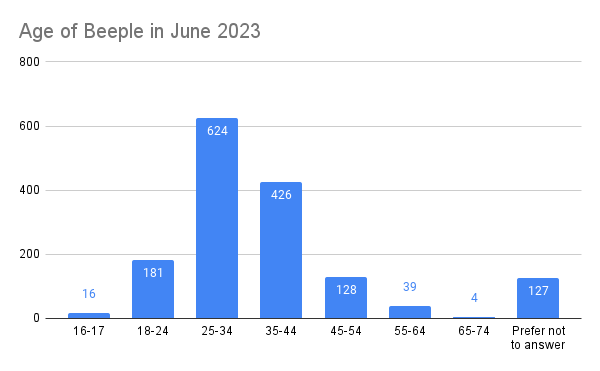
Most are above 24! Seems we got an older average age compared to a lot of social media. It would be interesting to see how many came here with experiences from independent forums before Reddit.
Where Beeple reside

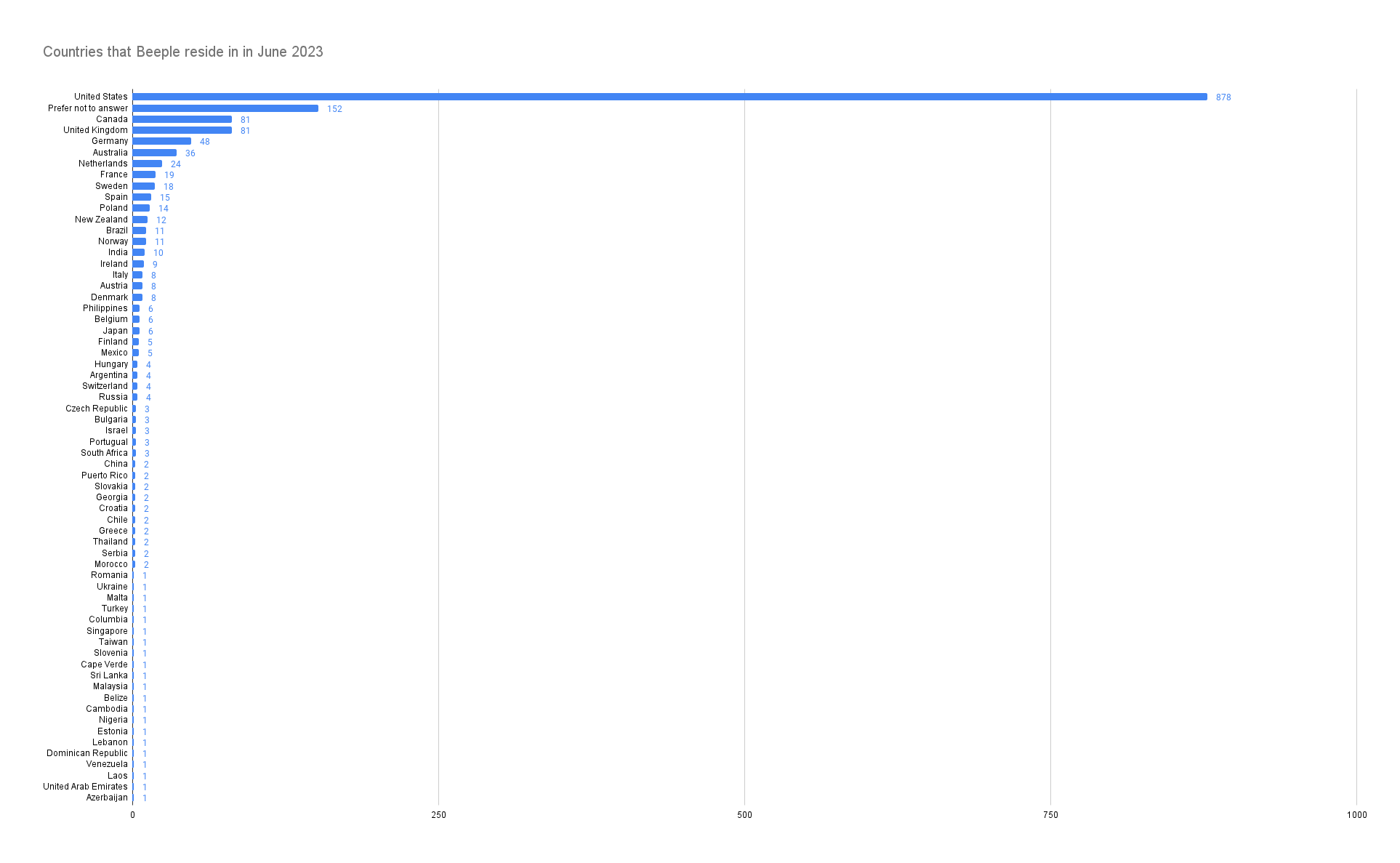
This one’s a big graph. Though we can notice most people are from the US. Would be nice to see more countries represented though a big part of it likely has to do with language. (You will need to open the big graph in another tab, it’s too big to show properly.)
Gender identity of Beeple

So, as expected, mostly men. However, less than expected which is nice to see. There should be outreach to at least equalize this.
Sexual orientation of Beeple
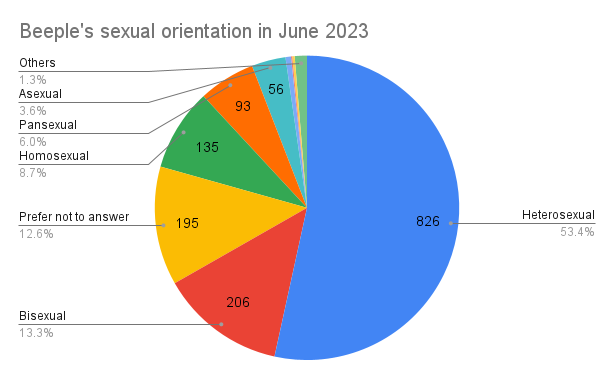
This is kinda surprising. It seems we managed to get a lot more LGBTQ+ people than expected considering most of you all come from Reddit - so this is nice to see. This is most likely because of our focus on a safe space.
Whiteness of Beeple
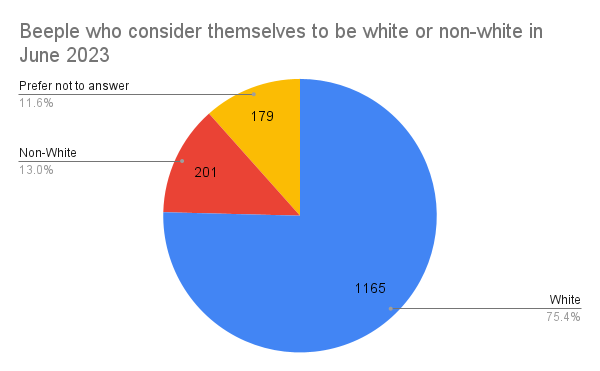
As expected, mostly white which is unfortunate. I think there’s outreach to be done in that regard as well.
Neurodivergence of Beeple

We seem to have a really surprising amount of neurodivergent people! Definitely nice to see.
Beeple with disabilities

I… have no idea how to interpret this data so I’ll just say, shiny graph.
Beeple’s awareness of the Fediverse
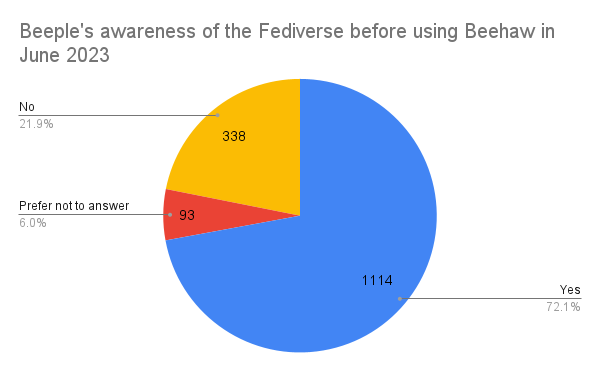
Most knew about the fediverse but still a good 20% had not heard about it so glad to see you all managed to find your way here!
How Beeple have been dealing with Beehaw
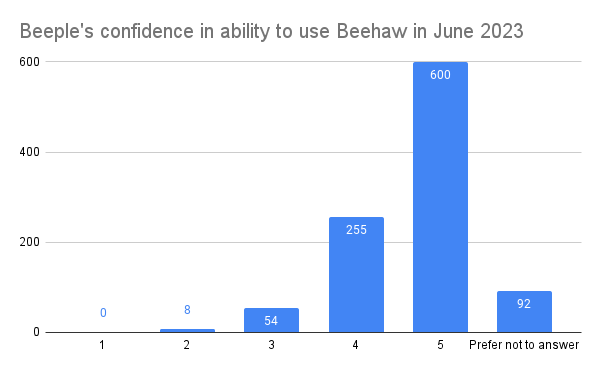
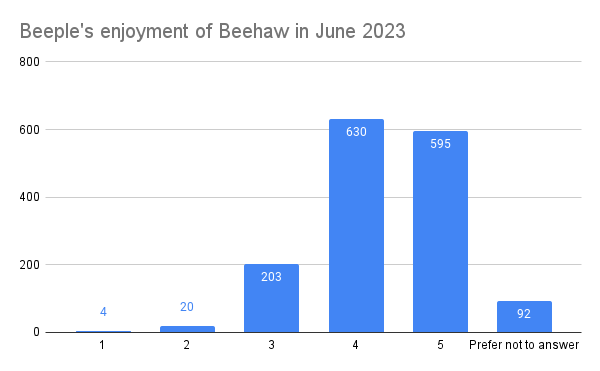
It seems most people feel relatively confident in their ability to use Beehaw and most people seem to enjoy it. That makes me really happy to see. Feels rewarding, feels good.
Conclusion
I wanna thank everyone for the feedback about the survey and its questions - we’ll do better next time! I’m glad we did this survey because it shows the areas to work on in terms of outreach! Thank you all for your participation!


The interesting thing about words is that we made them all up. Different people feel very differently about certain words in certain contexts. Slang and vernacular are perfect examples of this - we learn how people are using existing words in new ways all the time, and we adjust appropriately. What people don’t always recognize, however, is that words fall in and out of fashion constantly and how they are applied are also cultural artifacts. Prolific artists, famous movies, and important political figures all shape the way we interpret specific words - the cultural zeitgeist controls more than we are often aware.
Rather than assuming that unfortunate means it must be negative, because that’s the experience you’ve had when that word was used around you, I’d suggest asking questions and assuming good faith. You could ask what do you mean, when you use the word unfortunate before jumping to conclusions. Perhaps English isn’t the posters first language, or perhaps English in the country they are from use the word unfortunate in a very different way. Questions and good faith, rather than assumptions and escalation can quickly solve any questions you have and everyone leaves happy.
I think this is also a perfect example of why diversity is so amazing to be around and experience because you get exposed to so many more ways to utilize language, so many different backgrounds, and so many diverse points of view 😄